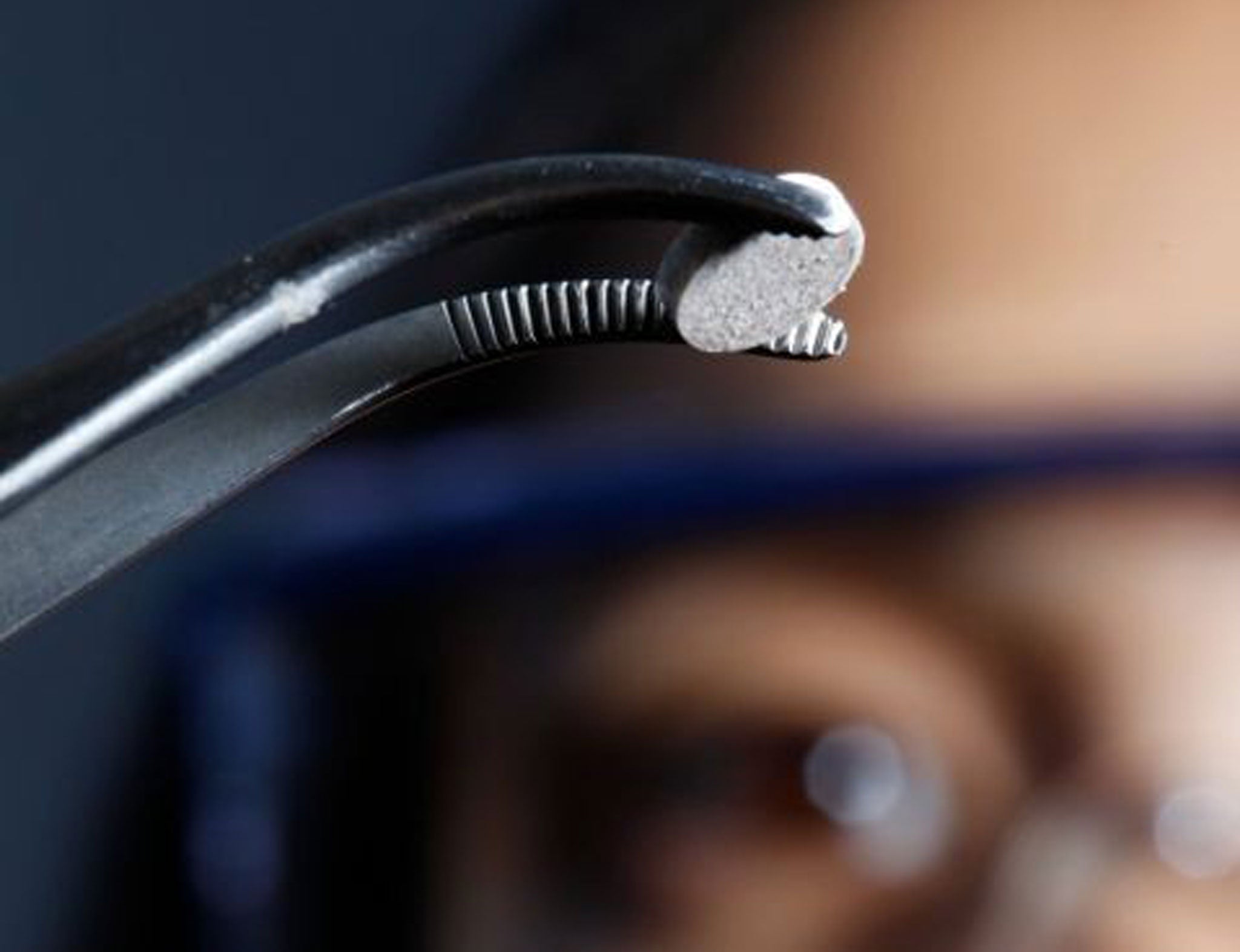Tiny implant which battles skin cancer to begin human trials
Cancer Research UK says that the technique shows 'real potential'

An implant the size of a fingernail that instructs immune cells to home in on and kill cancer cells has been put forward for clinical trials, which scientists hope could revolutionise the treatment of skin cancer.
The novel technique, one of several ground-breaking cancer vaccines in development, could also represent a new direction for treatments of other forms of cancer.
Researchers at Harvard University first trialled the implant in mice four years ago, but have now perfected their technique and received approval for human trials. The implant combats melanoma – the most lethal form of skin cancer.
Half the mice that received two doses of the vaccine showed complete regression of their cancer tumours.
Cancer Research UK said that the technique showed “real potential” to one day add to the growing “arsenal against cancer”.
The implant works like other vaccines by aiding the immune system’s ability to recognise and attack cancer cells. Research in the field of cancer vaccines is still in its early stages, but many scientists believe the techniques carry the potential for many future treatments. After a glut of major breakthroughs in recent years, development of some novel treatments has stalled, but the Harvard device heralds a possible new direction.
“It is rare to get a new technology tested in the laboratory and moved into human clinical trials so quickly,” said Glenn Dranoff, professor of medicine at Harvard Medical School. “We’re beyond thrilled with the momentum, and excited about its potential”.
The Phase I study in humans, which will test if the device is safe for clinical use, is expected to be complete by 2015, so it could be many years before the technique becomes available to patients.
Dr Emma Smith, Cancer Research UK’s senior science communications officer, said: “This is an early stage clinical trial to find out if a skin cancer vaccine is safe for patients, but larger trials will need to be run before we know if it can treat the disease and is better than the treatment that’s currently used. Harnessing our body’s own immune system to attack cancer is showing real potential and these types of novel approaches could mean expanding our arsenal against cancer.”
Join our commenting forum
Join thought-provoking conversations, follow other Independent readers and see their replies
Comments
Bookmark popover
Removed from bookmarks